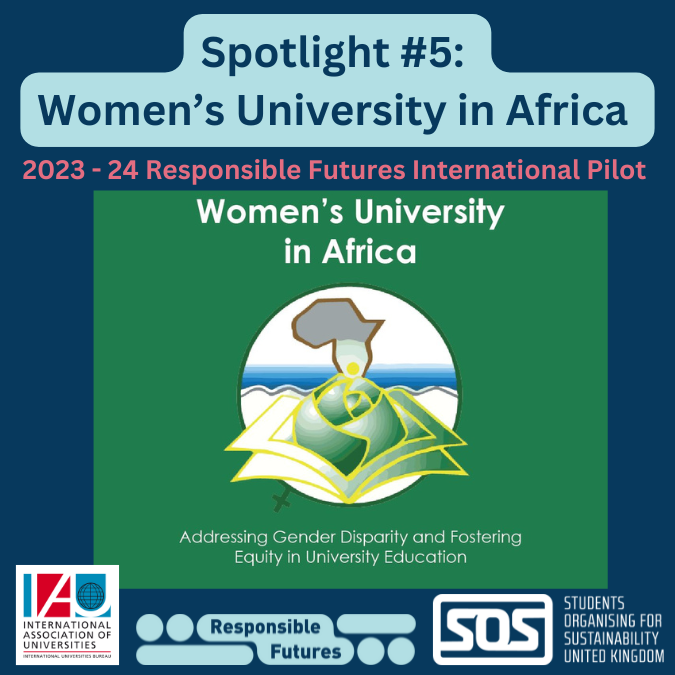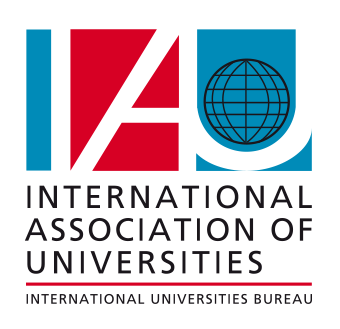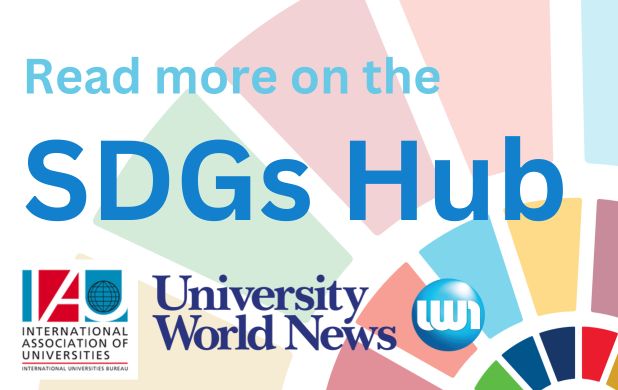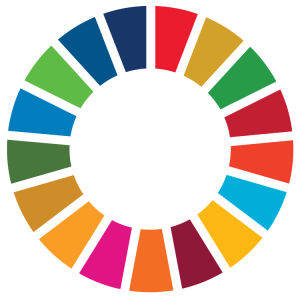
In partnership with Students Organising for Sustainability (SOS-UK), the International Association of Universities is pleased to spotlight one of our Responsible Futures International pilot participants, Women's University in Africa(WUA) in Zimbabwe.
Through their participation in the Responsible Futures Programme, WUA is dedicated to integrating comprehensive sustainability into both formal and informal curricula in Higher Education. To drive this mission, WUA has established a formal structure to implement the Responsible Futures Programme, complementing existing clubs and associations that address sustainability issues.
“Sustainability begins from our own environments, our homes, our institutions, and the communities we identify with.” claims Dalitso Ndlovu, WUA Bachelor of Science Honours Degree in Information Systems, “In our innovations, we need to recognise that the world is moving towards cleaner and more sustainable practices.”
The Responsible Futures Programme at WUA:
The programme is composed of 2 students per level across 5 campuses in Zimbabwe and 1 in Malawi (Diploma to PhD Programmes), a student representative council that closely collaborates with the Dean, 2 staff members per department on all campuses. These team members conduct programme evaluations every semester.
To guide the work of the programme, the WUA Internationalization Committee of the Senate, chaired by the Vice Chancellor, receives reports from the Responsible Futures Sub Committee every semester to inform the Senate and University Council. The Sub Committee for Responsible Futures then collects reports from various other university sub-committees for the Internationalization Committee of the Senate. These university leadership offices are currently revisiting the 2023-2027 Transformational Strategy to incorporate the Responsible Futures Programme and ensure that the strategy is in line with the UN’s Sustainable Development Goals.
Focus Areas:
- Advocacy, Awareness, and Visibility: team members are working to establish a core working group of staff and students.
- Marketing, Communications, and Public Relations: team members strive to develop an advocacy strategy, create sustainability content, and produce a sustainability newsletter.
- Monitoring and Evaluation is to be conducted twice a year at the end of each semester in order to ensure reasonable and responsible strategic planning can take place while previous goals are being met.
One ongoing sustainability project of note is the Boost Enactus Team (student club). The team has recently competed in a national competition at the Celebration Centre in Harare for a project on Automated Irrigation Systems with farmers at the University Farm in Marondera.
We applaud Women's University Africa for their outstanding efforts and look forward to their continued success in embedding sustainability across all facets of higher education. 🌱🎓



